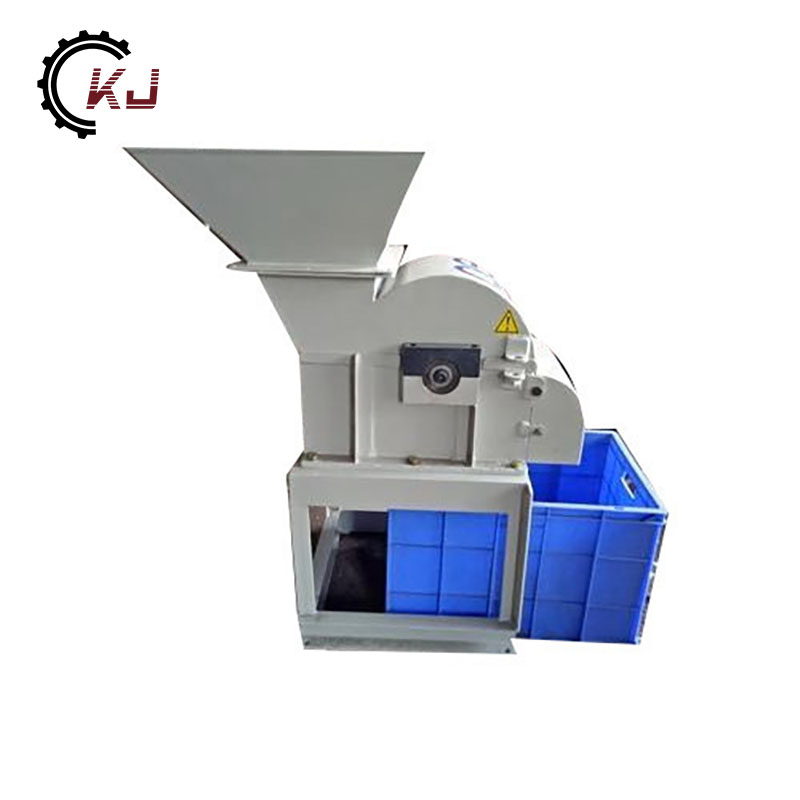Exploring the Versatility of Plastic Crusher Machines: Processing Various Types of Plastic Materials
2024-03-22
In the quest for sustainable waste management and resource conservation, plastic recycling has emerged as a critical solution to mitigate environmental impact and promote circular economy practices. At the heart of plastic recycling processes lies the plastic crusher machine, a versatile tool capable of reducing plastic waste into manageable sizes for further processing. However, not all plastics are created equal, and understanding the types of plastic materials that can be processed using these machines is essential for effective recycling efforts. In this blog, we'll explore the diverse range of plastic materials that can be processed using plastic crusher machines.
1. Polyethylene (PE):
Polyethylene is one of the most widely used plastics due to its versatility, durability, and low cost. Plastic crusher machines can effectively process various forms of polyethylene, including high-density polyethylene (HDPE) and low-density polyethylene (LDPE). These plastics are commonly found in packaging materials, containers, and household products.
2. Polypropylene (PP):
Polypropylene is another commonly recycled plastic that is widely used in packaging, automotive components, and consumer goods. Plastic crusher machines can efficiently process PP materials, including plastic bottles, caps, and packaging films, into smaller particles for recycling into new products.
3. Polyethylene Terephthalate (PET):
PET is a durable and lightweight plastic used extensively in the production of beverage bottles, food containers, and polyester fibers. Plastic crusher machines can crush and shred PET bottles and containers, facilitating their transformation into recycled PET (rPET) flakes for use in the production of new PET products.
4. Polystyrene (PS):
Polystyrene is a versatile plastic used in packaging, insulation, and disposable foodservice items. Plastic crusher machines can handle various forms of polystyrene, including expanded polystyrene (EPS) foam, polystyrene packaging, and disposable cups, reducing them into smaller pieces for recycling.
5. Polyvinyl Chloride (PVC):
Polyvinyl chloride is a widely used thermoplastic known for its durability and versatility. While PVC poses challenges for recycling due to its chemical composition, plastic crusher machines can effectively process PVC materials, such as pipes, fittings, and packaging, into granules for reuse in various applications.
6. Acrylonitrile Butadiene Styrene (ABS):
ABS is a strong and impact-resistant plastic used in automotive parts, electronics, and consumer goods. Plastic crusher machines can efficiently crush ABS materials, including molded parts, housings, and electronic casings, enabling their reprocessing into new ABS products.
7. Polyethylene Naphthalate (PEN) and Other Specialty Plastics:
Plastic crusher machines are also capable of processing specialty plastics, such as PEN, polycarbonate (PC), and polyphenylene oxide (PPO). These plastics are used in niche applications, such as engineering components, electrical insulation, and specialty packaging, and can be recycled using appropriate shredding and grinding techniques.
Conclusion:
Plastic crusher machines play a crucial role in the recycling of various types of plastic materials, ranging from common packaging plastics like PET and HDPE to specialty engineering plastics like ABS and PC. By effectively processing these diverse plastics, plastic crusher machines contribute to the circular economy by diverting plastic waste from landfills and reducing the demand for virgin plastic resin. As advancements in recycling technology continue to evolve, plastic crusher machines will remain indispensable tools in the quest for sustainable waste management and environmental conservation.



